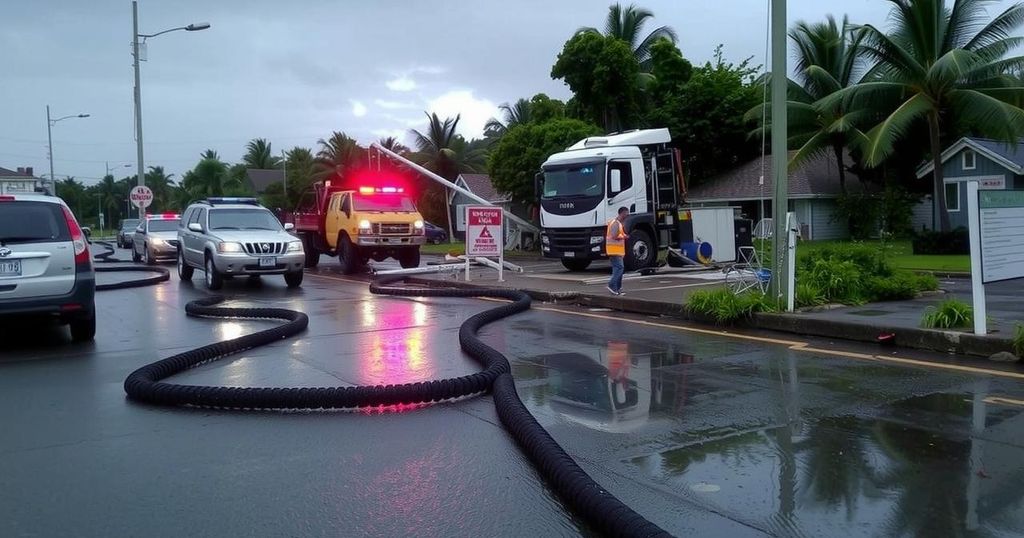Tropical Cyclone Chido struck Mayotte, killing at least 22 and causing extensive destruction. A curfew has been imposed as aid efforts ramp up, but concerns remain over the health crisis and the challenges faced by undocumented residents. The situation is compounded by political instability in France.
Mayotte, a French archipelago located off the eastern coast of Africa, has been severely impacted by Tropical Cyclone Chido, which made landfall over the past weekend. In response to the devastation, the local authorities implemented a curfew from 10 p.m. to 4 a.m. in an effort to stabilize the situation as rescue workers and aid organizations rush to provide essential supplies. The cyclone resulted in the deaths of at least 22 individuals, with estimates suggesting that the actual toll could rise significantly as many residents, particularly those living in undocumented conditions, remain unaccounted for.
As rescue efforts continue, the mayor of Mamoudzou, the capital of Mayotte, reported that over 1,400 people sustained injuries due to the storm. The cyclone’s wind gusts reached 124 miles per hour, exacerbating the destruction across the territory. Access to many of the affected shanty towns remains challenging, complicating relief operations. The preemptive measures of curfews have reportedly reduced the occurrence of civil unrest, although concerns over potential looting have not been entirely alleviated.
In addition to the deployment of aid forces from Réunion, a nearby French island, local officials have outlined plans to enhance medical support via the establishment of a field hospital to supplement the only existing hospital in the territory. However, they express urgent anxiety regarding the onset of health crises resulting from deteriorating sanitary conditions if aid does not reach victims promptly. The authorities aim to restore half of the drinkable water supply within two days, with hopes of achieving a more comprehensive recovery shortly thereafter.
The cyclone’s arrival has taken place amidst a tense political climate in France, where the recent cabinet dismissals have drawn scrutiny over the government’s preparedness for natural disasters. Amidst these developments, President Emmanuel Macron is scheduled to visit Mayotte to assess the situation firsthand, while criticism has emerged concerning the new Prime Minister François Bayrou prioritizing local commitments over attending crucial emergency discussions regarding the cyclone’s aftermath.
Mayotte, known for its strategic location between the African continent and the Comoros islands, is recognized as France’s poorest territory and has been facing severe challenges related to undocumented immigration and inadequate infrastructure. The region is susceptible to cyclones, but Cyclone Chido presented an unprecedented level of destruction, with its fierce winds and heavy rainfall causing extensive damage to the residential areas. The local government struggles with the dual challenge of addressing the needs of its residents, many of whom are undocumented, and coordinating effective disaster response efforts.
In summary, Mayotte faces a dire humanitarian situation following the catastrophic impact of Tropical Cyclone Chido, prompting the enforcement of a curfew and stirring concerns over health crises due to inadequate resources. With international aid mobilized from neighboring islands, local officials are racing against time to restore essential services and support the population, while the national government navigates political upheaval and public expectations for effective disaster management. The upcoming visit by President Macron may provide needed attention and resources to this beleaguered territory.
Original Source: www.nytimes.com







